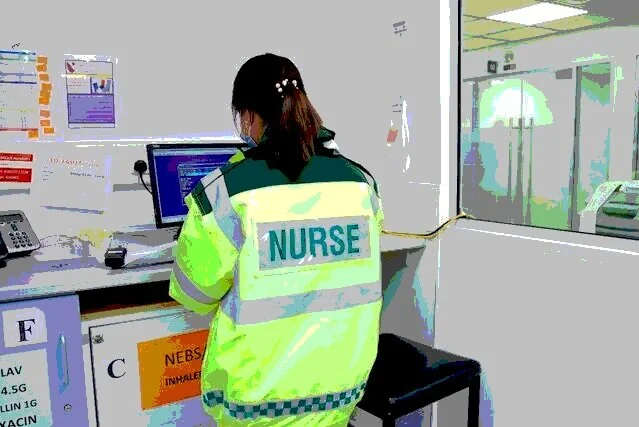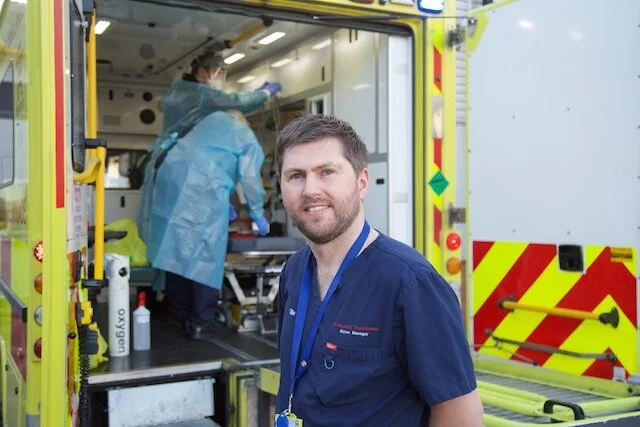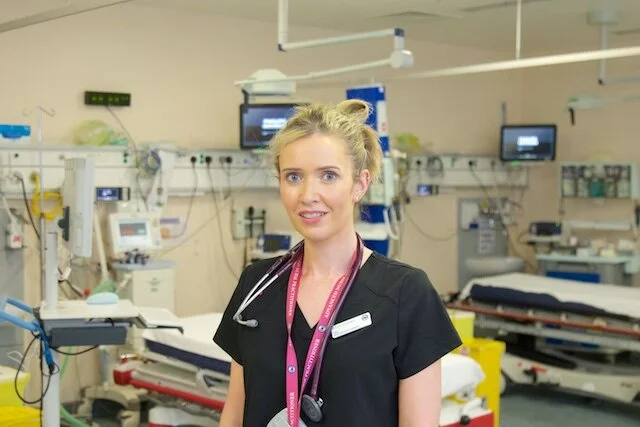“Emergency Nurses work independently and interdependently with the multidisciplinary team to provide the optimal level of emergency nursing care that is patient focused, family centred, maximises health and social gain, promotes excellence in nursing practice and advocates for all patients who suffer sudden injury or illness. Emergency nursing practice is underpinned by expert knowledge gained through specialist education and clinical experience. It is informed by best evidence and research”
— Mission of Emergency Nursing
Emergency Nursing
Emergency Nursing has developed into a distinct specialist area of practice that is dynamic, complex and progressive. Emergency nurses are seen as leaders in the initiation and coordination of patient care. Emergency Nursing is about the three rights: right patient receiving the right care at the right time, thus providing a complex service to the patient.
St. James’s Emergency Department has been at the forefront of the development of the speciality of Emergency Nursing. St. James’s was the first Emergency Department to introduce a nurse led minor injuries clinic, the first ever Registered Advanced Nurse Practitioner in Ireland and the first sub-speciality ANP in the Emergency cardiology service. The ANP Service at St. James’s ED acts as a training institute to support the development of trainee ANPs in hospitals across Ireland.
St. James’s ED also provided the basis for the development of the national foundation programme in Emergency Nursing Education.
The Emergency Department (ED) is a gateway to the hospital environment, therefore it is necessary for ED staff to have extensive knowledge, skills and resources to meet the demands of patients (HSE, 2008).
The involvement of nursing in the Emergency Medicine Programme has provided an opportunity to develop a definition of Emergency Nursing across the National Emergency Care System.
Emergency Nursing is defined as the provision of immediate nursing care and intervention to adults and children who have undiagnosed, undifferentiated healthcare needs arising from social, psychological, physical and cultural factors.
The key components of Emergency Nursing include:
Rapid patient assessment and assimilation of information, often beyond the presenting problem
Allocation of priority for care
Intervention, based on the assessment
On-going evaluation
Discharge or referral to other sources of care undertaken independently by the nurse within guidelines



